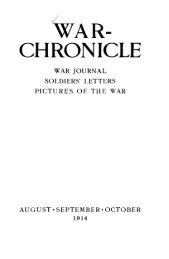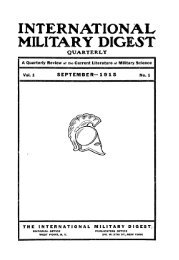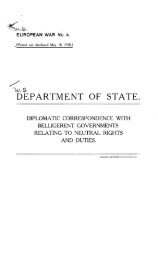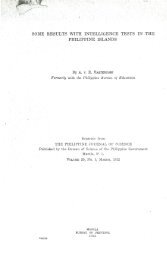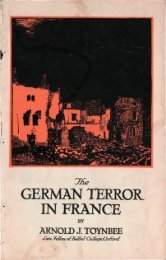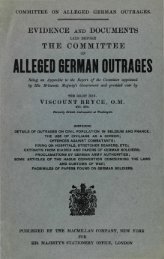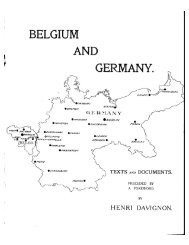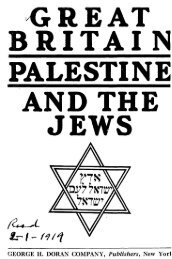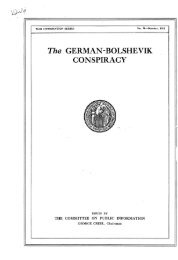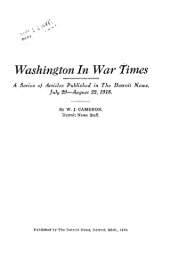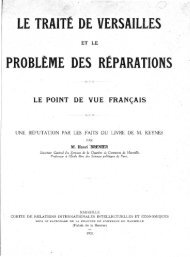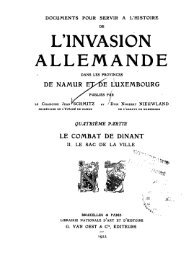PERSECUTIONS OF THE GREEKS IN TURKEY SINCE THE ...
PERSECUTIONS OF THE GREEKS IN TURKEY SINCE THE ...
PERSECUTIONS OF THE GREEKS IN TURKEY SINCE THE ...
Create successful ePaper yourself
Turn your PDF publications into a flip-book with our unique Google optimized e-Paper software.
<strong>PERSECUTIONS</strong> <strong>OF</strong> <strong>THE</strong> <strong>GREEKS</strong> 11<br />
destruction of Hellenism was made by this measure, especially<br />
if the fanaticism with which it was carried out be<br />
taken into account, for naturally these measures were not<br />
extended to include the Mussulman deserters. In order<br />
to understand this, it is enough to glance at the following<br />
extracts of official reports.<br />
Thus the report of the vice-consul of Greece in<br />
Cydonia dated December 12, 1914, No. 672 (Ministerial<br />
Archives, No. 47298) makes the following statement:<br />
" About 5 A.M. soldiers closely invested Cydonia and<br />
guards with fixed bayonets beset the Greek houses and<br />
even the consulate itself, stopping all traffic in the<br />
streets. At the same time the Military Governor,<br />
through a proclamation, summoned the deserters to present<br />
themselves, and ordered the citizens to hand over<br />
all hidden weapons. About midday a house to house<br />
search began, executed by officers who did not spare even<br />
the churches themselves. During this search many unheard<br />
of excesses were committed and upward of two<br />
hundred Greeks were seized. In Genitsarochori, in<br />
particular, the gendarmes went so far as to outrage<br />
women. But what surpasses all description is what took<br />
place in Moschonesia, where churches were looted, and<br />
men and women were beaten and tortured. Thus a man<br />
named Copanos was thrown into a pit and pricked with<br />
needles to compel him to betray the whereabouts of<br />
weapons and deserters supposedly concealed in Moschonesia.<br />
The bishop Photios, various priests and prominent<br />
men were seized, beaten and imprisoned in a mill,<br />
to be released only after some days had passed. The<br />
object of this search for deserters and arms was to diminish<br />
the male population, to disarm the inhabitants<br />
and to dishearten the Greek element through various<br />
oppressive means. During this cruel search crowds of<br />
Bashibouzouks surrounded the city awaiting the signal<br />
to come in and loot and destroy the place. The Military<br />
Governor was heard to say: "One or two more such



